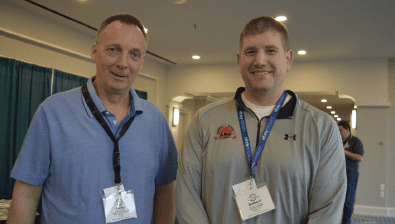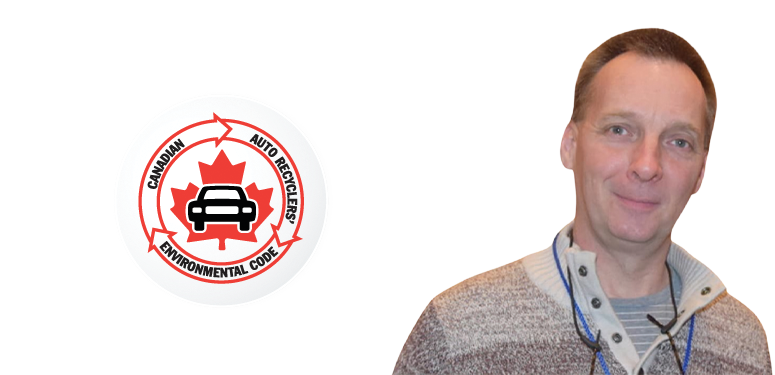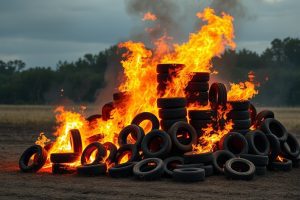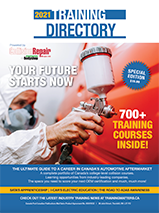An interview with the incoming ARC Managing Director, Wally Dingman
Let’s be real—Wally Dingman needs no introduction. Most of those who attend events and keep up to date with the latest regulatory changes and important environmental standards are well aware of who Wally is and his many contributions to the national industry. If you’ve even simply heard of the Canadian Automotive Recycling Environmental Code (CAREC), you’re familiar with Wally’s work.
Regardless of how well-known Wally may be to us in the industry, Canadian Auto Recyclers was eager to chat with the incoming managing director of the Automotive Recyclers of Canada as he steps into this new role.
Here’s what Wally had to say when we checked in with him at the beginning of March.
Canadian Auto Recyclers: Wally, tell us a little bit about your history and experience in the industry.
Wally Dingman: I started off in the industry under my dad when I was 16 years old, at Caughill Auto Recyclers. I’ve done every job in the place and understand every aspect of the business.
I was an auto recycler for 40 years before I repurposed and sold my property. I’ve seen the industry from the owner’s perspective, but also at a higher level from my experience serving as both chairman of the Ontario Automotive Recyclers Association (OARA) for 11 years and chairman of ARC for 10 years.
During my time with OARA, I worked with the government to introduce Ontario Regulation 85/16, which governs the management of endof- life vehicles under the Environmental Protection Act. That regulation, like many others, was modeled after the Canadian Automotive Recycling Environmental Code (CAREC), which has become the industry standard in multiple provinces. CAREC ensures that vehicles are handled properly to prevent environmental contamination and promote safe recycling practices.
CAR: How are you planning to achieve a Canadian automotive recycling industry standard?
WD: CAREC has already been adopted by several provinces, and my goal is to see it implemented in all jurisdictions across Canada. Vehicles are the same across the country, and the challenges we face as recyclers are consistent. It only makes sense to work toward a unified national standard.
We’re not looking to change or modernize existing regulations—we want to expand the application of CAREC to include the unique conditions surrounding Electric Vehicles (EVs). As EVs become more common, recyclers need clear, standardized guidelines for handling batteries, high-voltage systems, and other EV-specific components.
In addition to strengthening CAREC’s reach, I am also meeting with provincial associations to understand their specific challenges. Supporting the associations strengthens the industry as a whole.


CAR: How would the auditing process work under this potential new industry standard?
WD: The auditing process will remain the same—recyclers must be audited to become members of their provincial associations, which connects them to ARC. That structure is already in place and is key to maintaining accountability.
Instead of reinventing the system, we are focused on ensuring that all jurisdictions align with CAREC. Ontario Regulation 85/16 is already modeled after CAREC, and we want other provinces to follow suit. By expanding CAREC’s reach and incorporating best practices for EV handling, we can establish a consistent, nationwide approach to automotive recycling.
CAR: What other priorities are you focusing on?
WD: Vehicles are the lifeblood of our industry, and a strong, efficient vehicle acquisition program is critical for the success of our associations and their members.
One of my key priorities is revamping our vehicle program to modernize the way recyclers interact with consumers and to increase the availability of vehicles for our members. A steady supply of vehicles is essential to sustaining and growing our businesses.
By improving the interface between recyclers and the consumer, we can streamline the process of acquiring end-of-life vehicles, ensuring they are properly recycled and remain within the regulated system rather than being lost to unlicensed operators. Strengthening the vehicle program will help grow association membership and create more opportunities for recyclers.
CAR: Wally, what message would you like to convey to industry stakeholders?
WD: We are all in this together. While recyclers may be competitors in some respects, our long-term success depends on working together under a shared standard like CAREC.
By expanding CAREC’s adoption across all jurisdictions, addressing the challenges of EV recycling, and modernizing how recyclers acquire vehicles, we can create a stronger, more sustainable, and more profitable automotive recycling industry in Canada.


























